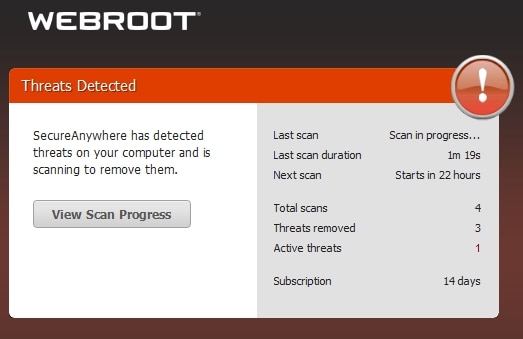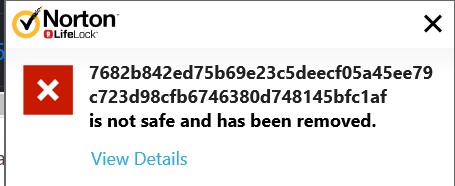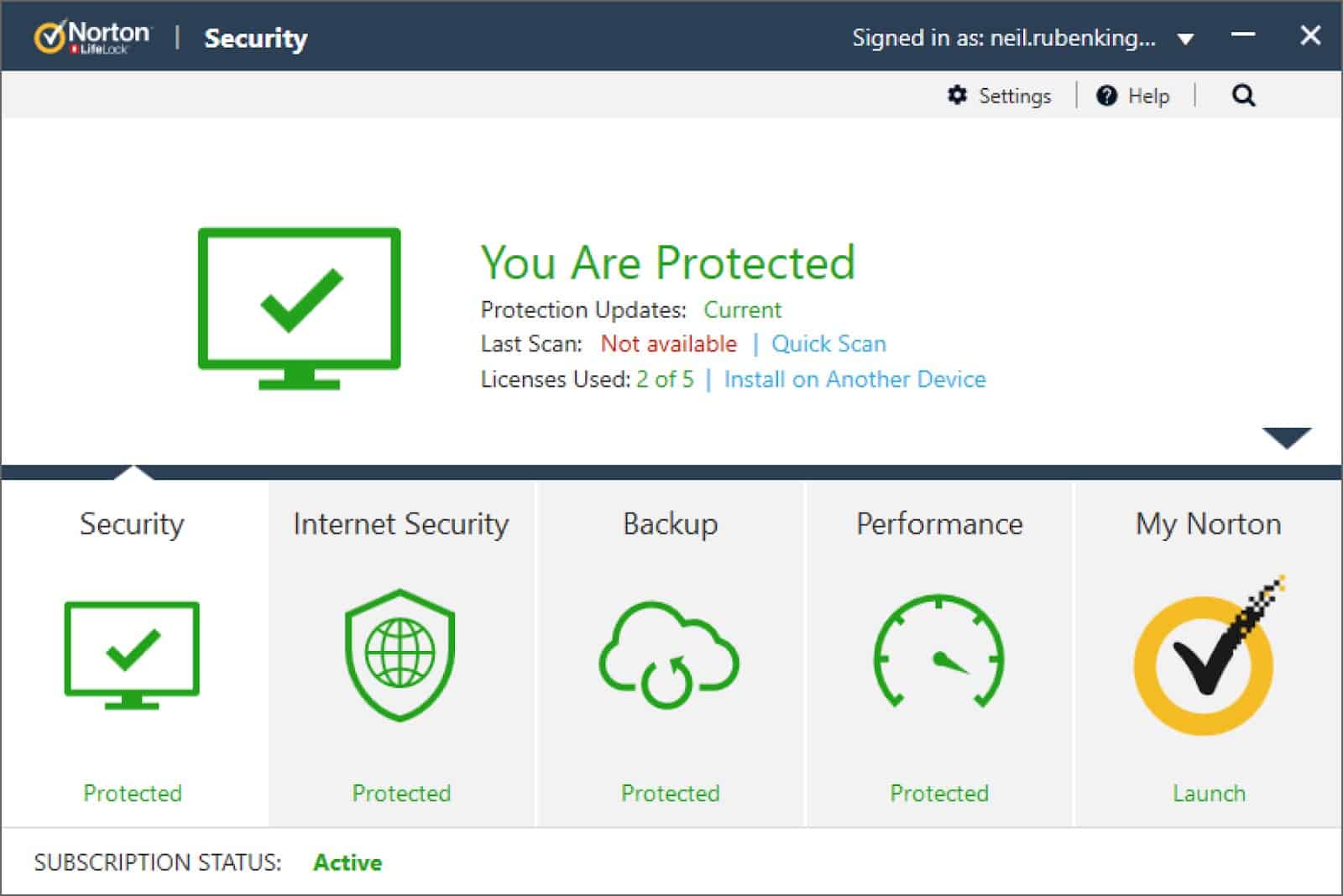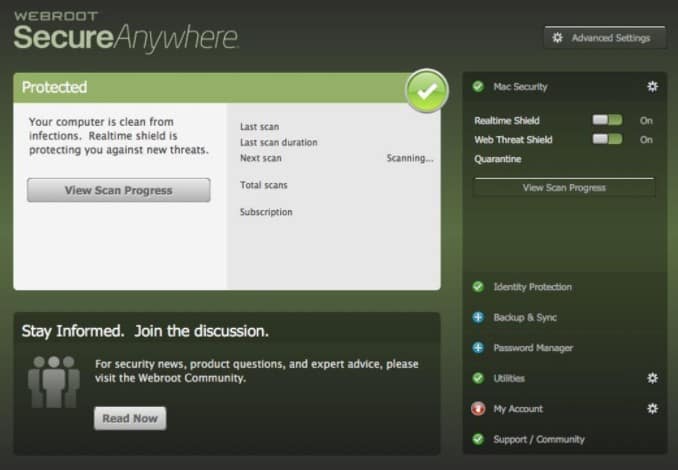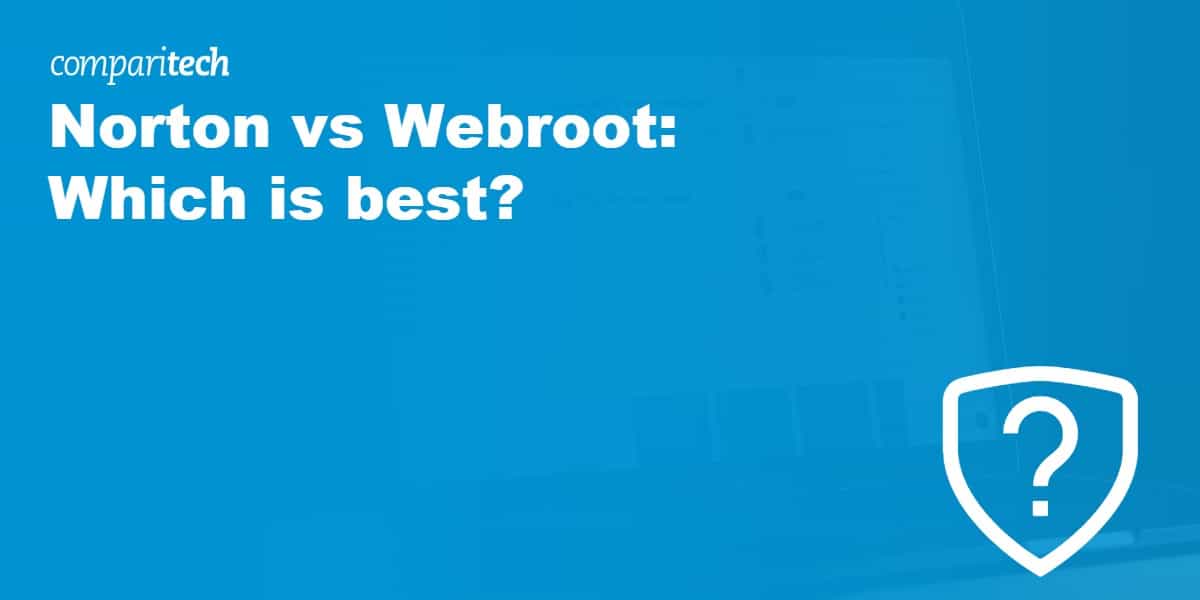
Ready for a heavyweight showdown? We’re pitting Norton against Webroot, two giants in the antivirus arena. We’ve rolled up our sleeves and run rigorous malware protection and performance tests, corroborated by top AV labs. We’ll also break down the nitty-gritty – features, pricing, and ease of use.
Spoiler alert: Norton takes the crown if you’re short on time. It excels in identity protection, parental controls and consistently nails it in both our tests and independent evaluations. But if you’re up for the details, keep reading.
If you have more time, read on for the full comparison.
Summary: Norton vs Webroot
Norton 360 Deluxe
- Strong malware protection results
- Webcam protection
- Includes a VPN
Webroot Complete
- Anti-phishing
- Password manager
- Identity theft protection
| No value | Norton | Webroot |
| Website | Norton.com | webroot.com | Antivirus and Antispyware | Firewall | Web protection/anti phishing | Parental controls | Password Manager | Webcam protection | PC Cloud Backup | VPN | Ransomware protection | Banking and Payment Protection | Network Attack Protection | Secure data encryption | Automatically update apps | File Shredder | Performance Optimization | Identity Theft Protection |
|---|---|---|
| Best deal (per month) | $3.33 GET 57% off the first year! | $4.33 SAVE 35% on a 1 year plan |
Background
Norton
Norton’s been a big deal since ’91. Once known as Symantec, it rebranded as Norton LifeLock after snagging LifeLock’s identity protection in 2017. Fast forward to 2020 and 2021, and it’s added Avira and Avast to its arsenal. Yep, the same Avast that had already absorbed AVG. So, what’s the takeaway? Norton’s assembling an all-star team from the antivirus world.
In 2007, Norton dominated with a 61% U.S. market share in security suites. Today, it’s the go-to for nearly 50 million users worldwide. Trustworthy? You bet.
Webroot
Webroot hit the scene in ’97 and has been safeguarding businesses and consumers ever since. In 2019, it got scooped up, along with parent company Carbonite, by OpenText – a Canadian enterprise software giant. As of 2014, OpenText was Canada’s largest software company and one of its top employers. So, Webroot’s got some serious backing.
Pricing and compatibility
Opting for a paid for antivirus software reduces your risks. A free, limited version often lacks in defense. Although it can seem appealing to opt for a no-cost software, when it comes to protecting your identity and privacy online, it’s usually well worth going with a paid antivirus.
Looking at Norton’s offerings, there’s a big price difference between its standard and premium products. The software starts at $59.99 per year, up to $149.99 per year. Many other products are also available on its website, including one specifically for gamers. I have included the key antivirus products in the table below. The most obvious differences between the Norton 360 Standard and Deluxe plans are that you get parental controls and cover for five devices in the deluxe version.
| No value | Norton Antivirus Plus | Norton 360 Standard | Norton 360 Deluxe | Norton 360 with LifeLock Select |
| Website | norton.com | norton.com | norton.com | norton.com | One year price | $19.99 | $39.99 | $49.99 | $99.48 | Renewal price | $59.99 | $84.99 | $104.99 | $149.99 |
|---|---|---|---|---|
| Best deal (per month) | $1.66 Get 66% OFF an annual plan | $3.33 Save 52% on your first year | $4.16 Save 52% on your first year | $8.29 SAVE 33% on an annual subscription |
Webroot has taken a simpler approach in its price structures and offers just three products. There’s less comparison required between products to make your choice, but you don’t get the same flexibility you do with Norton. Webroot’s basic antivirus starts at $39.99 per year which is almost half the price of Norton’s standard version. Webroot Internet Security Plus is again cheaper than Norton’s mid-tier options. It costs $59.99 per year and will protect up to five devices. Webroot’s top tier product is $79.99 per year and around half the cost of Norton’s comparable product.
| No value | Webroot AntiVirus | Webroot Internet Security Plus | Webroot Internet Security Complete |
| Website | webroot.com | webroot.com | webroot.com | One year price | $25.99 | $38.99 | $51.99 | Renewal price | $39.99 | $59.99 | $79.99 |
|---|---|---|---|
| Best deal (per month) | $2.16 Save 35% | $3.24 SAVE 35% on a 1 year plan | $4.33 SAVE 35% on a 1 year plan |
At the time of writing this comparison, both Norton and Webroot are offering discounts off your first year of subscription. Norton 360 Deluxe is currently offering a $55 discount for your first year, making it just $49.99. This is one of the biggest discounts we’ve seen to date from Norton. Webroot is offering a 35% discount on the complete product, so you’ll pay $51.99 for the first year. Despite Norton being higher in price, its discounts make up for it.
If you find that the software isn’t right for you a few days down the line, you can get your money back within 60 days from Norton and 70 days from Webroot.
You’ll also be pleased to know that Norton and Webroot work with all major operating systems, including Windows, MacOS, and Android devices.
Effectiveness against malware
It’s important to opt for paid antivirus software, as it offers you the greatest protection against complex online threats. Of course, if you’re paying for antivirus software, you must ensure it can deal with these threats effectively.
I ran some of my tests to determine which came out on top. The first test involved downloading test malware samples from the European Institute of Computer Antivirus Research (EICAR), which are harmless files that simulate real malware attacks. The second test used live malware samples to see how the antivirus fared in real-time.
| No value | Norton | Webroot |
| Website | Norton.com | webroot.com | Eicar Sample 1 | Blocked | Allowed | Eicar Sample 2 | Blocked | Allowed | Eicar Sample 3 | Blocked | Allowed | Eicar Sample 4 | Blocked | Allowed | Live Sample 1 (Adware) | Blocked | Blocked | Live Sample 2 (Trojan) | Blocked | Blocked | Live Sample 3 (Trojan) | Blocked | Blocked |
|---|---|---|
| Best deal (per month) | $3.33 GET 57% off the first year! | $4.33 SAVE 35% on a 1 year plan |
Webroot allowed all of the EICAR samples but automatically blocked and removed my live samples.
So did Norton perform better? Norton blocked the first EICAR sample, and blocked the two zipped EICAR samples upon extraction. It immediately detected and deleted the three live samples. From my own tests, Norton performed better against malware threats.
These tests are not enough to give a comprehensive result, so I looked at some recent independent tests conducted by testing organizations. AV-Test evaluates the protection of antivirus software. Its most recent protection test gave Norton a 100 percent score in its September and October 2021 tests. Webroot was not tested by AV-Test.
AV-Comparatives is another independent testing site which reports on antivirus software protection levels. From its most recent Real-World Protection test summary from July to October 2021, Norton also received a 100 percent protection rate.
Norton recorded a high number of 37 false alarms during this period, which was the highest amount of any provider tested. A false alarm is where an antivirus identifies safe files as threats. This could become annoying; however, Norton’s superb protection levels make up for this. AV-Comparatives did not test Webroot.
Weighing up all this evidence, it is clear that Norton is the winner. It outperforms Webroot in all areas, and offers the best protection against malware. These results are backed by my own tests and the latest stats from leading testing websites.
Impact on PC performance
Speed and performance is an important factor for most PC users. After paying for your antivirus software, having one that slows down your device will leave you feeling irritated. In this section, I ran my own tests to see if my PC performance was impacted.
| No value | Norton | Webroot |
| Website | Norton.com | webroot.com | Full Scan Time (minutes) | 121 | 72 | Number of scanned objects | 1,420,276 | 11938 | Full Scan CPU Utilization % | 84 | 95 | Full Scan Memory Utilization % | 75 | 63 | Full Scan Disk Utilization (seconds) | 381 | 721 | Control CPU Utliization % (no scan) | 14 | 25 | Control Memory Utilization % (no scan) | 72 | 67 | Control Disk Utilization (seconds) (no scan) | 13 | 10 | Quick Scan Time (seconds) | 171 | 1 | Quick Scan CPU Utilization % | 37 | 37 | Quick Scan Memory Utilization % | 76 | 78 | Quick Scan Disk Utilization (seconds) | 41 | 97 |
|---|---|---|
| Best deal (per month) | $3.33 GET 57% off the first year! | $4.33 SAVE 35% on a 1 year plan |
The table above shows the results from a full scan and a quick scan. Norton’s full scan took 121 minutes compared to Webroot’s 72 minutes. Even so, Norton scanned almost 10 times more items than Webroot, delivering a more thorough result. The quick scan for Webroot took just one second, which is not surprising due to Webroot’s lightning-fast scans. Norton took 171 seconds, which still isn’t bad.
I also recorded the impact on PC performance when no scan was present and when a full scan was running.
Norton came out on top here in all areas, using just 14 percent CPU utilization when no scan was running and 84 percent when a full scan was taking place. This goes to show that Norton has very little impact on PC performance.
I looked at AV-Comparatives’ recent performance test from October 2021 to see if the results matched my own. This test is particularly insightful as it shows data on eight common tasks:
- Downloading files
- Browsing websites
- File copying: first and subsequent run
- Installing and uninstalling applications
- Archiving and unarchiving
- Launching applications: first and subsequent run
Norton received a rating of fast for installing applications. All other tasks were very fast. Overall, Norton was around the middle of the results. Webroot was not part of the AV-Comparatives test.
Although Webroot prides itself on speed, it uses more resources when performing scans compared to Norton. Its scans only go a fraction of the depth of those performed by Norton as it only scans files that have changed since Webroot last scanned them. Norton is my winner in this round.
Features
So, what exactly are you getting for your money? This section will delve into what both companies offer in terms of additional features, which are important for giving you ultimate protection online.
Norton 360 Deluxe
- Cloud backup 50GB
- Real-time threat protection
- Password manager
- Secure VPN
- Dark web monitoring
- PC SafeCam
- Parental control
Webroot Complete
- Advanced threat protection
- Protection that stops ransomware
- Anti-phishing
- Lightning-fast scans
- Protects account logins and passwords (LastPass)
- Eliminates traces of online activity
- 25GB of secure online storage
Norton 360 Deluxe
50GB cloud backup: Store and protect important files and documents against failures, stolen devices, and ransomware with secure cloud backup.
Parental controls: Manage your children’s activity online, so they can enjoy the digital world safely.
PC SafeCam: Worried about hackers accessing your webcam? This feature will notify you if that’s happening, providing you with reassurance.
Webroot Complete
Lightning-fast scans: Webroot will finish scanning your device in just 20 seconds, which is the quickest amongst competitors.
LastPass: Protect your passwords and other personal information with LastPass, the most trusted password manager. This will prevent hackers and other online threats from stealing your information.
25GB of secure online storage: Keep all your important files and photos safe, with secure online storage.
Norton includes more comprehensive features compared to Webroot, with a focus on security. Whether that’s keeping children safe online or making sure your information doesn’t end up on the dark web, its focus is on keeping you safe.
Signup and installation
If it’s your first time installing antivirus software, you don’t need to worry. It’s hassle-free and easy to follow.
Click the yellow Subscribe Now button on Norton’s website and you will be taken to another webpage to input your details and view a summary of your order. Norton clearly outlines your subscription, the number of devices, and amount of backup storage you are getting. It also outlines compatibility and the renewal cost for the following year. Simply set a reminder in your calendar if you do not wish to renew. There’s also an option to add Norton Computer Tune Up at $9.99 but this is not automatically added.
Webroot lays out all payment and customer information on one page. It does give you a choice to increase the number of devices covered under your plan, which is something Norton doesn’t offer. The software CD is automatically added at an additional cost. Most users don’t need a software CD so make sure you delete this from the order.
How easy is the interface to use?
The antivirus interface is something that you will use regularly, so it’s important that it’s easy to navigate.
When opening Norton’s dashboard, you will see that it’s all in its signature colors of green and yellow. You are clearly shown your current protection status and a breakdown of how many licenses are used. The bottom panel shows your security, backup, and performance status. It uses clear icons and a protected label making it easy to understand. You can also access a web portal to manage the protection of all your devices.
Webroot’s interface is easy to use with a simple navigation structure. Although quite dated in design, it does everything effectively. The right-hand panel allows you to access your identity protection, backups, and passwords with ease. You can even keep up to date with the latest news by clicking on the bottom panel which takes you to the Webroot Community.
Customer support
In the event of a problem with your software, knowing that there is adequate customer support on hand is a reassurance.
Norton offers 24/7/365 days a year support on all of its products, even if you opt for the lower-priced one. There is also a live chat support function which is useful, as well as online communities, FAQs, and support through social media channels. Norton offers comprehensive support and stands out amongst its competitors.
Webroot only offers support via the phone during business hours, which could prove a problem if something happens outside these hours. If it’s not urgent, you can log a support ticket, search the website’s support section, or ask the community of fellow Webroot users.
Our antivirus testing methodology
At Comparitech, we use a carefully thought out antivirus testing methodology to identify important antivirus features and benchmarks. In addition to testing how easy the antivirus is to set up and use, we check the company’s reputation, the service’s privacy and data retention policies, and the company’s jurisdiction. Our method also aims to identify:
- The impact that both quick and full scans have on system resources
- The amount of time it takes to run quick and full scans
- The efficacy of the real-time scanning and online protection features
- The effectiveness of the antivirus software’s detection and malware removal during scans
Our process combines in-house testing with laboratory results from the world’s leading antivirus testing authorities:
This combined approach allows us to provide information about how an antivirus performs in a real-world setting, and how this compares to other products. It also allows us to provide unbiased information regarding each product’s ability to identify and deal with threats across various different platforms and operating systems.
Which antivirus is more user-friendly?
Norton takes the lead when it comes to user-friendliness. With its intuitive and polished interface, navigating and utilizing its features becomes a breeze. The straightforward setup process, coupled with clear instructions and helpful prompts, is a boon for even the least tech-savvy users, instilling a sense of comfort and confidence in their choice.
Which antivirus has better speed and performance?
When it comes to speed and performance, Webroot has the upper hand in terms of speed. However, Norton, despite being more resource-intensive, compensates with its ability to scan 10 times more files, which can be a crucial factor for those prioritizing comprehensive protection over speed.
Which antivirus offers better user privacy?
When it comes to user privacy, Norton stands out. Its comprehensive range of privacy tools, including a secure VPN, password manager, and dark web monitoring, instills a sense of security and protection. These features are designed to safeguard users’ personal information and online activities, making them feel secure and protected.
Conclusion
If you’ve made it through the whole comparison, you’ll know that Norton is the clear winner. Norton outperforms Webroot in malware protection and performance in my own tests, and performs highly in independent tests. Its security-enhancing features provide peace of mind that you’re receiving the best protection while getting good value for money.
See also:
- McAfee vs Norton
- Webroot vs Sophos
- Best overall antivirus providers
- How to avoid fake antivirus software
FAQs about antivirus software
What's the difference between free and paid antivirus?
One of the most significant differences between free and paid antivirus is that with a paid antivirus, you are more likely to receive regular updates for your software. In addition, paid antivirus programs typically have teams of developers working full-time to update their malware definitions, so you are much more likely to be protected from the latest threats than using a free program.
Additionally, paid antivirus programs often offer more advanced features than free ones. For example, many paid programs have built-in firewalls and can scan for vulnerabilities in your system that could be exploited by hackers or malware. This extra level of protection makes it much safer to use a paid antivirus program over a free one.
Can I use Norton and Webroot simultaneously?
Using multiple antivirus programs simultaneously is generally not recommended, as this can lead to conflicts and performance issues. For example, if you have Webroot installed and try to install Norton, you’ll generally receive a prompt to remove the conflicting software, though this is not always the case.
Does Webroot include a VPN?
Webroot does offer a VPN service, but it’s not included with their standard antivirus packages. This means you’ll have to pay an additional cost if you want to use Webroot’s VPN. Webroot’s VPN has been reported to have DNS leaks, which could potentially compromise your privacy. Moreover, if you plan to use a VPN to unblock streaming platforms, you might find Webroot’s VPN lacking, as it doesn’t unblock many popular streaming services.

